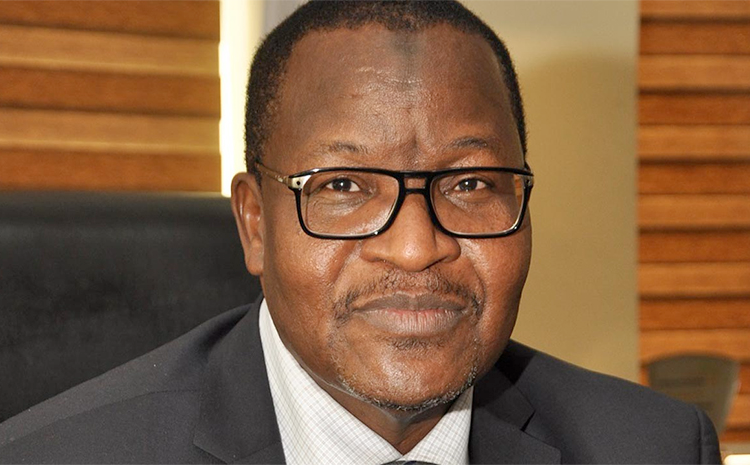The Nigerian Communications Act (NCA 2003) generally provides for the protection and promotion of interests of Consumers including Differently Abled Persons and the Elderly. Pursuant to the NCA 2003, the Nigerian Communications Commission (NCC), driven by its Consumer-centric initiatives to ensure fair treatment as well as an acceptable Quality of Experience for consumers of ICT products and services, established the Industry Consumer Advisory Forum (ICAF).
ICAF is not completely independent of the Nigerian Communications Commission (NCC) but has been established as part of the Commission’s strategy to achieve its mandate for protection and promotion of the interests of Consumers against unfair practices; including but not limited to matters relating to tariffs and charges for the availability of quality communications services, equipment and facilities.
The 2023 open forum brings together the Regulators, Service Providers and Consumers of Telecommunication Products and Services. Last week, the second quarter 2023 Open Forum of the Industry Consumer Advisory Forum (ICAF) held with the theme “Combating E-fraud on Telecom Platforms and Building Consumer Confidence in the Digital Economy”, in Ikeja, Lagos.
In recent years, Nigeria has witnessed remarkable growth in the digital economy, revolutionizing the way we communicate, transact, and conduct business. The telecom sector plays a pivotal role in enabling this digital transformation, providing the infrastructure and connectivity that fuel our interconnected world.
Digital technology offers Nigeria the opportunity to grow and diversify its economy from the overdependence on agriculture or oil and gas export proceeds. The launch of the Nigerian National Broadband Plan 2020 – 2025 as well as the National Digital Economy Policy and Strategy 2020 – 2030 (NDEPS) attests to the fact that Nigeria is poised to join the comity of nations and become a global leader in transforming its economy into a digital one.
Delivering his keynote address, the Executive Vice Chairman of the NCC, Prof Umar Danbatta said as we navigate the ever-evolving landscape of technology, we must address the growing concern of fraudulent activities in the digital realm and take proactive measures to safeguard the trust and confidence of consumers.
Rising e-fraud
In recent years, Nigeria has witnessed remarkable growth in the digital economy, revolutionizing the way we communicate, transact, and conduct business. The telecom sector plays a pivotal role in enabling this digital transformation, providing the infrastructure and connectivity that fuel our interconnected world.
However, with these advancements come new challenges, one of which is the rising tide of e-fraud and cybersecurity concerns. E-fraud encompasses a wide range of malicious activities carried out via electronic means, including identity theft, phishing, hacking, and unauthorized access to personal and financial information, with the intention to defraud or take advantage of victims. These criminal activities may not only cause significant financial losses but also erode consumer trust in the digital ecosystem.
Regulation To Secure The Network
Prof Danbatta said, “The NCC as the regulator of the communications sector has a crucial role to play in combatting e-fraud. We must establish comprehensive legal frameworks and standards that mandate sound security practices for telecom operators. The legal framework must focus on data protection, privacy and incident response, ensuring that operators are held accountable for any lapses in security on their respective networks.
“The NCC also type-approves communications equipment to ensure that they conform to global standards and are interoperable with various relevant technologies. In this regard, The Commission collaborates with Mobile Network Operators to ensure the safety of their networks and conducts regular audits and assessments to verify compliance and encourage a culture of cybersecurity within the industry.”
Speaking further, he said, in accordance with the Nigerian Communications Act 2003, telecom operators have a responsibility to ensure the security and integrity of their networks and to prevent it from being used in, or in relation to, the commission of any offence under any law in operation in Nigeria.
With the increasing uptake of digital financial services and the advent of disruptive technologies, the issue of cybersecurity has become increasingly important. Telecom operators must therefore invest in robust infrastructure, employ state-of-the-art security measures, and conduct regular audits to identify vulnerabilities and address them promptly.
Additionally, operators should implement stringent authentication protocols, two-factor authentication, and encryption mechanisms to safeguard customer data and prevent unauthorized access, Danbatta said.
The chairman of Industry Consumer Advisory Forum (ICAF), Mazi Akpa E. Emeka, said fraud has escalated as digital adoption has increased. The situation requires that organizations simultaneously combat fraud and provide customers with a seamless digital experience.
Forms of e-Fraud
Digital adoption leapfrogged a decade in days during the COVID-19 pandemic, accelerating the shift to digital and multichannel client service that began in the 2010s. The pandemic-driven boost to e-commerce is estimated to have exceeded $200 billion in 2020 and 2021.
The ICAF Chairman noted that increased digital adoption has enabled new forms of fraudulent activity and amplified the importance of effective fraud management for promoting growth and meeting customers‘ increasing expectations for digital experiences. Although most companies have improved their digital user interface and experience, many have struggled to effectively enhance fraud controls without impairing the client experience.
Many organizations report that they are being overwhelmed by the sheer volume of fraud attempts. In financial services, for example, many banks are so inundated by fraudsters that they cannot meet online origination targets; they are unable to verify identities and authenticate customers while combating fraud.
“At the same time, fraud threat vectors have become significantly more sophisticated. They include nation-state actors, organized criminals, cyber terrorists, and insiders, as well as local fraud rings. Advances in technology present challenges as fraud attacks occur with greater frequency, speed, and effectiveness.
Commonly used methods include phishing, destructive malware, social engineering, deep fakes, and fraud-as-a-service exploit kits. Faster movement of money usually increases the risk of fraud, and real-time disbursements are set to double within the year and beyond as economic hardship gets tougher. Risk rises further when unsuspecting customers inadvertently share their authentication details with fraudsters targeting their devices and accounts.
The evolution of fraud threats has undermined the effectiveness of a reactive approach to combating fraud, which essentially focuses on stopping schemes one by one through manual reviews.
What ICAF Is Doing
The 2023 2nd quarter open forum of ICAF decided to bring this issue to bear as it affects consumers a great deal. “In this edition, we intend to propose a new approach on Combatting E-Fraud on the Telecommunication Platforms and ways of Building Consumer Confidence in the Digital Economy and we believe with the retinue of experts here present, we intend to achieve this goal using the current realities of this time to strengthen the core capabilities and improve our abilities to continually identify and address vulnerabilities arising from new fraud methods and patterns,” added Emeka. ss
The Director, Consumer Affairs Bureau, NCC, Alhaji Alkasim Abubakar Umar said the NCC remains committed to its mandate of creating an enabling environment for the sustainable growth of the telecommunications sector. To this end, it has already implemented several initiatives aimed at mitigating e-fraud risks.
“However, we understand that the battle against e-fraud requires constant adaptation and continuous improvement. Hence, this forum serves as a platform to share best practices, exchange knowledge, and explore innovative solutions to stay ahead of the ever-evolving tactics employed by fraudsters.
“This forum provides us with an opportunity to come together as stakeholders, including telecom operators, financial institutions, law enforcement agencies, government bodies, and concerned citizens, to collaborate and devise effective strategies to combat e-fraud. I encourage all participants to actively engage in discussions, share their experiences, and propose practical recommendations.
“Let us leverage the collective expertise in this room to develop strategies that strike a balance between convenience and security, ensuring that our telecom platforms remain safe and trustworthy.
The Consumer is one of the major stakeholders in the telecoms industry. It is the NCC’s desire to ensure that they enjoy primary focus. The NCC believes that through adequate education, information sharing, and the provision of an array of channels for redress, it can safeguard telecom consumers, and innovatively promote the prospect for greater Consumer Experience in the Digital Economy.




